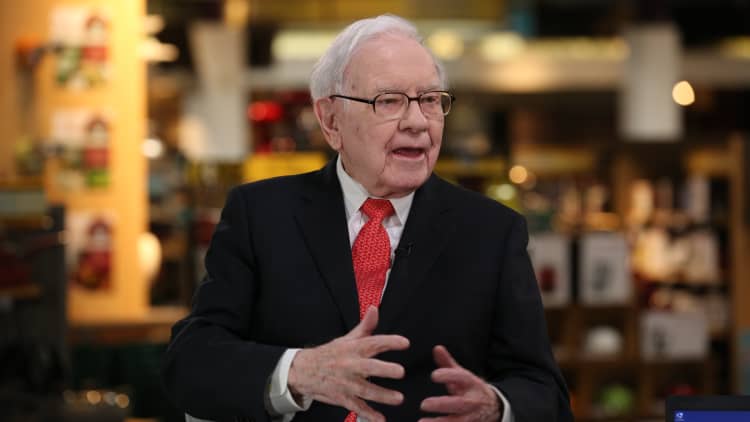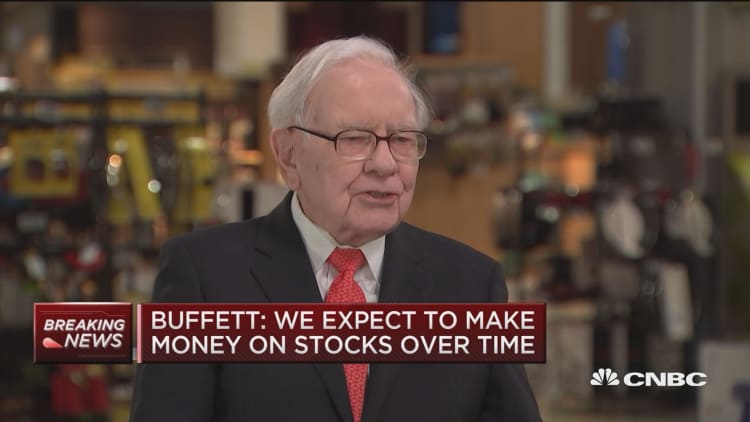
Warren Buffett remains bullish on index fund investing.
After all, his own company can't beat them.
The billionaire investor told CNBC on Monday that Berkshire Hathaway's chief stock pickers, Ted Weschler and Todd Combs, have failed to beat the .
"Overall, they are a tiny bit behind the S&P, each, by almost the same margin," Buffett told Becky Quick on "Squawk Box" from Omaha, Nebraska.
Buffett has long championed low-cost index funds.
"I think it's the thing that makes the most sense practically all of the time," he recently told CNBC's On The Money.
Index funds are a form of passive investing, and they hold every stock in an index. The S&P 500, for example, owns big-name companies, including Apple, Microsoft and Google.
Buffett told CNBC's Squawk Box recently that if someone invested $10,000 in an index fund back in 1942, it would be worth $51 million today.

Still, some financial professionals associate that form of investing with resignation.
That attitude can be costly, said Christopher Cordaro, chief investment officer of RegentAtlantic, a Morristown, New Jersey, financial-planning firm.
"The biggest contributor to people under-performing is a lack of humility," Cordaro said. "They think they know when to get in and out of the market or which stock or sector is going to do best."
Recent research from Morningstar found that in 2018 just 38 percent of active U.S. stock funds fared better than their passive peer funds.
"When you buy the S&P 500, you're buying the American economy," Cordaro said. "I don't think that's ordinary at all."
Disclosure: NBCUniversal and Comcast Ventures are investors in Acorns.
More from Invest in You:
Stashing cash finally starts to pay off
Why HSAs are ideal millennial savings vehicles
Smart moves for long-term financial security






